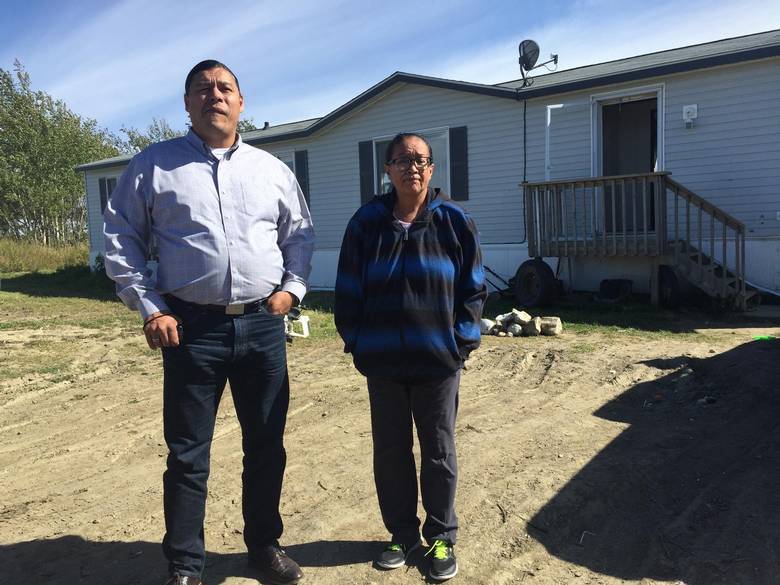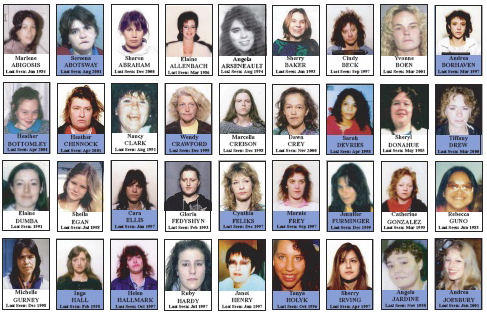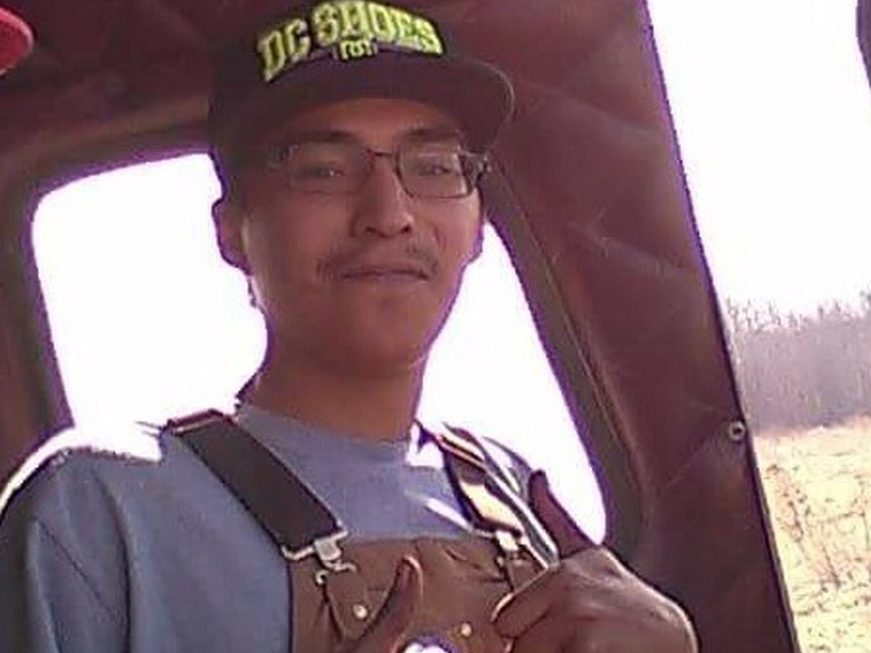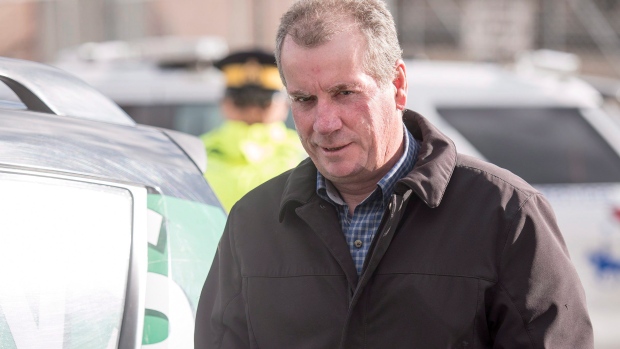The Protection of Life and Property
Rest in Peace Colton Boushie.
You certainly didn’t deserve to die because of any mistake you may have made, but sometimes life is not equal or fair, particularly if you are from a visible minority. In my life, I’ve made several mistakes that could easily have ended just as bad but didn’t, partly because I’m white, but also because I was just plain lucky at that particular moment.
Gerald Stanley
I also wish peace for Gerald Stanley and his family.
While I may wish that to be the case, as the man who pulled the trigger, I fear your life and that of your family is forever changed. The spotlight will be on you and your family for months and years to come. I don’t know your state of mind at the time of the shooting and don’t know if you are a racist, but it makes little difference now. Did you have the law on your side when you fired the fatal shot? The jury said “yes”, but the law states differently, even if that law was not applied as it should have. That will be explored in this post.
The Protection of Life and Property
Debate continues to swirl around the tragic death of Coulton Boushie after a jury acquited Gerald Stanley of all charges. Setting aside for a moment the role racism may have played, the question left unanswered is the extent to which a citizen has the right protect themselves, their family and property from intruders. While the jury has had the last word in this phase, the case is far from settled. If the Crown is functioning as it should, an appeal will be filed, particularly with respect to the included charge of manslaughter.
Because the issues of racial conflict quickly took top billing, other considerations seem to have fallen by the wayside. What failed to gain traction in the media, was a discussion of the limits of citizen rights to protect themselves and their families from grievous bodily as opposed to protecting their property.
In short, there is no provision in Canadian law that allows either a police officer or a citizen to kill in the protection of private or public property except in the most narrow of circumstances. Take out a gun and start firing shots, warning or otherwise, at someone attempting to steal your car or ATV, and you are asking for big trouble. You end up killing someone and you will be charged. While you might not be convicted of murder (that will depend on whether intent or recklessness disregard can be proved) you will very likely be convicted of manslaughter. The fact Gerald Stanley got off on all counts was an anomaly in the system.
In the present case, I recall hearing Gerald Stanley state he fired two warning shots. I presume his intent at that point was to chase the intruders from his property. Fair enough, dangerous, but OK. I then read that Stanley’s son ran over and began to smash the window out of a truck as it attempted to flee. This immediately changes the complexion of the case.
At the same time, Gerald Stanley ran over and attempted to pull the keys from the ignition of another vehicle as it attempted to flee. It was at that point, he fired the fatal shot to the back of Boushie’s head. At this point, it is abundantly clear Stanley was attempting to effect an arrest, a power he did not hold. How is wife came to be involved in the melee is not explained, but seem’s to have been thrown in to try and explain Stanley’s actions.
Given other comments reported at the trial and then the ‘not guilty’ verdict, it is difficult to see how many communities across Saskatchewan will be able to move forward with any form of peace. A conviction for manslaughter was certainly possible (and seemed likely), but the jury saw it differently. That might have gone a long way towards suggesting impartiality, but it didn’t happen.
Unfortunately, if the case stands as is, for many it will cement the idea that it is OK to kill someone trying to steal property, a right that does not exist in Canadian law. I have noted many comments to that effect on my FB page and leaves no doubt some of those friends might well shoot first and ask questions later if they come upon someone trying to steal their property.
The fact the jury was all-white, only adds fuel to the fire. This is not to say an all-white jury could not make an honest finding, the optics are terrible. He is a quote from a legal article: “Kent Roach, a criminal law and constitutional rights expert at the University of Toronto, has described Canada’s system of allowing the pre-emptory exclusion of jurors as “a stone-cold invitation for jury selection to be infected by conscious or unconscious racist stereotypes.” (How to Avoid Appointing All-White Juries).
The all-white jury was not the fault of Stanley’s lawyer, he was just doing his job, it was the fault of a system that is stacked against aboriginals and many others who hold no power in our society. Some have also referenced “a jury of his peers.”
For most serious offences, an accused has the right to be tried by their peers, something that, on the surface, appeared to be the Stanley case. But, was it? If you only consider ‘white people’ to be peers of white people, then you are relegating the rest of the community to another status. Now, what about the status of the victim? Because he was aboriginal, does that assign him to another victim category? In Canada, experience suggests for minority victims this is often the case (reference personal experience in the footer).
To switch things around, do you think it acceptable for a jury hearing the case of an aboriginal charged with murdering a white person intruding on aboriginal land, be restricted to members of the aboriginal community? I highly doubt that would happen. Would there be a potential for bias? I haven’t checked the racial mix of juries trying such cases, but my bet is they are and have been mainly white.
What happened in the Battlefords and has happened in other parts of Canada, has been happening for decades across Canada and the United States. There is an ongoing failure to balance the makeup of juries in a manner that represents the citizens of the city or town in which the trial takes place.
In the case at hand, the person killed deserved a good measure of consideration and respect. That has certainly not been the case in many comments I read. When the victim is from a minority group, is LGTBQ or of a “lower” social class, attention to that detail is seldom seen as that important. Was the victim in the Battleford case afforded such respect and recognition? I don’t think so, as from the very get-go he was treated as a drunk, out of control, aboriginal (and the word aboriginal was often substituted for an earlier name).
From what I have read, the police were not nearly as sensitive or professional in the collection of evidence as they might have been if the victim was white. Searching the home of the victim while leaving key evidence unprotected from the elements at the crime scene, provides two examples. An aboriginal shooting and killing of a white person or raping a white woman will elicit a far different response from the police.
In the present case, just taking time to balance the racial makeup of the jury and having the police provide a more professional response, might have gone a long way towards helping reduce the tension. Laying an additional charge of dangerous use of a firearm also might have helped as there is no question the firearm was used in a dangerous manner. It was no accident those first two shots were fired, and as for the third, who knows, but it matters not, the stage was set and a man was shot in the back and killed. Even with frontier justice in the old west, shooting an unarmed person in the back was very likely considered hanging offence.
I cannot provide quick suggestions for solutions, but reading and watching news reports of the horrible comments thrown about since this incident began, suggests the next murder or racial confrontation is waiting for a place to land somewhere in Saskatchewan or elsewhere in Canada.
Linked below are a few posts from previous years, that tackle the subject of a persons right to protect their life and property. I have also linked other posts that deal with the different levels of police response in high profile cases.
Harold
Note on a Personal Experience
In the present case, there is little doubt, the young man and his friends were drinking and doing something stupid, perhaps criminal. However, there was no suggestion they arrived at the farm with the intention of physically harming someone.
Over my thirty years of policing, I ran across that kind of stupidy dozens of times, and I do not recall one instance of someone (other than myself) bringing a gun to the scene.
I recall an incident in my early twenties of doing some pretty stupid things while drinking and roaring around in my 1954 Ford with a group of friends. On one occasion, we even had shotguns in the car when, after the partying most of the night, we planned to do a little out of season, early morning duck hunting on some farmers property where we did not have permission.
After killing several ducks we were chased by a Conservation Officer who had obviously been called by the farmer. We managed to escape by speeding down several back roads, but what if, we were aboriginals and the farmer had come out of the bush shooting? Back in the days of my youth (1950’s and early 60’s) racism was very much present and I thought it was becoming less today. But, after reading several articles about the Boushie investigation and trial, it seems to be getting worse.
For a full summary of the Judges Charge to the Jury, Link Here.
Summary of the Case in the Globe and Mail
Published: October 20, 2016

Globe and Mail File Photo: “Colten’s Boushie’s mother, Debbie Baptiste, stands outside her home on the Red Pheasant First Nation with former chief Sheldon Wuttunee.”
The following article makes if abundantly clear Gerald Stanley admitted to having deliberately shot Colton Boushie.
The Night Colton Bushie died: What Family and Police Files
say about his last day, and what came after.
Just a Stealin’ Drivin’ Man
Link here to an actual case that involved a close friend of our family. Shots were fired and property destroyed, but no charges were laid. Have a read of this case, then follow the footnotes of other cases in which citizens took the law into their own hands, sometimes with fatal results as happened in Saskatchewan.
To Catch a Thief
The Crime Filter and Aboriginals

These photos represent the victims of one of Canada’s worst serial killers.
The man was able to continue his crime spree for many years simply because the victims were of aboriginal origin, so the police did not take their missing status seriously. This is but one part of a story that originated not far from my hometown in Cold Lake, Alberta. The story concludes with the murder of a young man in Ontario, simply because the police gave more than one free pass to a young white man whose father was very rich.
Abducted, the First Twelve Hours
(484)
Tags: Debbie Baptiste, Aboriginal Justice, Citizens Rights, Murder and Manslaughter, North Battleford, SK, Jury Trials, Colton Boushie, Gerald Stanley, RCMP
Trackback from your site.



